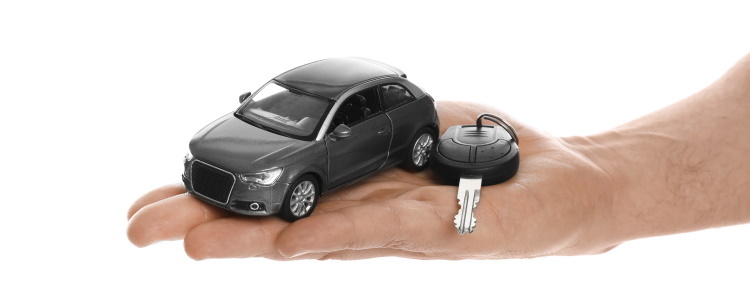If you’ve got a car you simply don’t want anymore, you’ve got a few options to mull over. We break down each to help you make a decision that may work best for your situation.
First, What’s the Car Worth?
Before you head out or list your vehicle anywhere, look up its value. You can check the estimated value of your car using websites like Kelley Blue Book, Black Book, and NADAguides. Use all three, if you’d like, to get an average estimated value of your vehicle. Try your best to be honest while you’re entering your car’s information so you can get the most accurate price point possible.
Next, ask yourself what plans you have next. Do you need another vehicle? Are you short on cash? Is the car worth your time to list it or sell it? Have these questions in mind while you’re reading through these sections.
Trading the Vehicle In
 Trade-ins are a very popular way for borrowers to upgrade their vehicle. Most dealerships can take trade-ins, but the amount you can get for your car varies widely. Your offer depends on the year/make/model of the vehicle, its mileage, its overall condition and desirability, and even where you live. A dealer’s stock can also influence how much they’re willing to offer you.
Trade-ins are a very popular way for borrowers to upgrade their vehicle. Most dealerships can take trade-ins, but the amount you can get for your car varies widely. Your offer depends on the year/make/model of the vehicle, its mileage, its overall condition and desirability, and even where you live. A dealer’s stock can also influence how much they’re willing to offer you.
It’s also important to note that the estimated values that you pulled from online may not be what a dealership offers. The actual cash value of your car is what it appraises for by the dealer.
If you decide that trading in your vehicle is the path for you, then it can be a good way to help meet down payment requirements. Many borrowers with less than perfect credit are required to bring at least $1,000 or 10% of the car’s selling price to qualify for financing. Trade-ins with equity can either cover the full amount, or at least help you meet it.
If you don’t have a lot of cash on hand and you need a down payment, and you’d like another vehicle, then trading could be the best choice for you.
Sell the Car Privately
When or if you look up your car’s worth on valuation sites, notice that you can get a private-party and a trade-in value.
Selling a vehicle privately doesn’t mean it’s a secret – selling a car on your own is a private-party transaction. This involves the seller, you, listing your vehicle online, in newspapers, or auto trader magazines to get a bite. It also means you must do a bill of sale and handle signing over ownership to the buyer. If you still owe on the car, you must pay off your loan and send enough money to your lender to remove the lien and legitimately transfer ownership to the buyer.
While selling your vehicle yourself involves some work, you can usually see a bigger profit than trading it in. Most dealerships offer less than what you can list the car for yourself, as dealers usually intend on selling the vehicle – so, they’re looking for a profit themselves. Notice how trade-in values are typically less than private-party values.
If you wanted to, you could sell your car yourself and then take the profit and use it as a down payment on your next vehicle, if you need one. However, a big plus to trading in a dealership is that they handle most of the paperwork for you, and you usually just sign the title and a few other things. Dealers are experienced with trade-ins, and it’s usually a seamless process, and you don’t have to wait for a buyer to come along.
Donating Your Vehicle
If your car is a clunker, or it’s not worth your time to sell it, you could donate it. You must own the vehicle outright to donate it, but you typically only need the title, to remove your auto insurance policy, and to find a charity that takes in cars.
You can also get a tax deduction if the charity is exempt from taxes. You itemize the deduction on your tax return, get a receipt from the charity, and you can usually claim the fair market value of the vehicle. Some charities sell cars at charity auctions, and you can deduct the selling price of it. If it sells for less than $500, then you can deduct up to $500.
If your vehicle is worth less than $500, it may be worth it to donate it and take the tax deduction. If you don’t think selling it is worth your time, or a dealership won’t accept it as a trade-in, then donating it and taking the tax deduction could make the most financial sense.
Do You Need an Upgrade?
Choosing what to do with your car can take some time, but many people opt to trade it in for something else. If you’re in need of another vehicle, but you’re not sure if you can get approved for an auto loan due to poor credit, then consider a special finance dealer. These dealerships are signed up subprime lenders that tailor a car loan around your personal situation, and don’t just rely on your credit score for eligibility for financing.
Trade-ins can help bad credit borrowers meet the down payment requirement of subprime lenders. If this is the avenue you’d prefer, then we want to assist you. Here at Auto Credit Express, we’ve created a nationwide network of dealers that are signed up with subprime lenders. Get connected to a dealership in your local area after filling out our free auto loan request form.
















